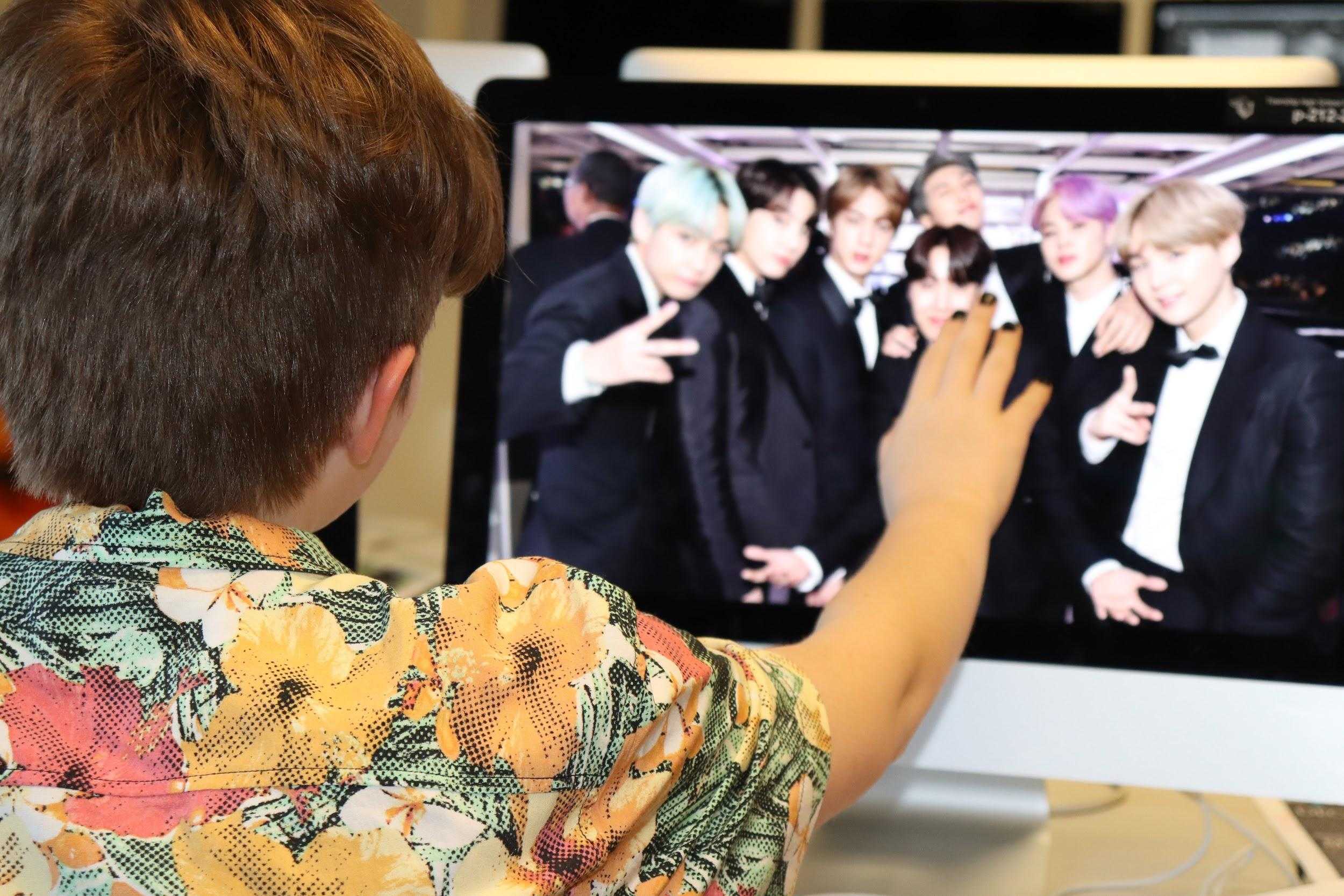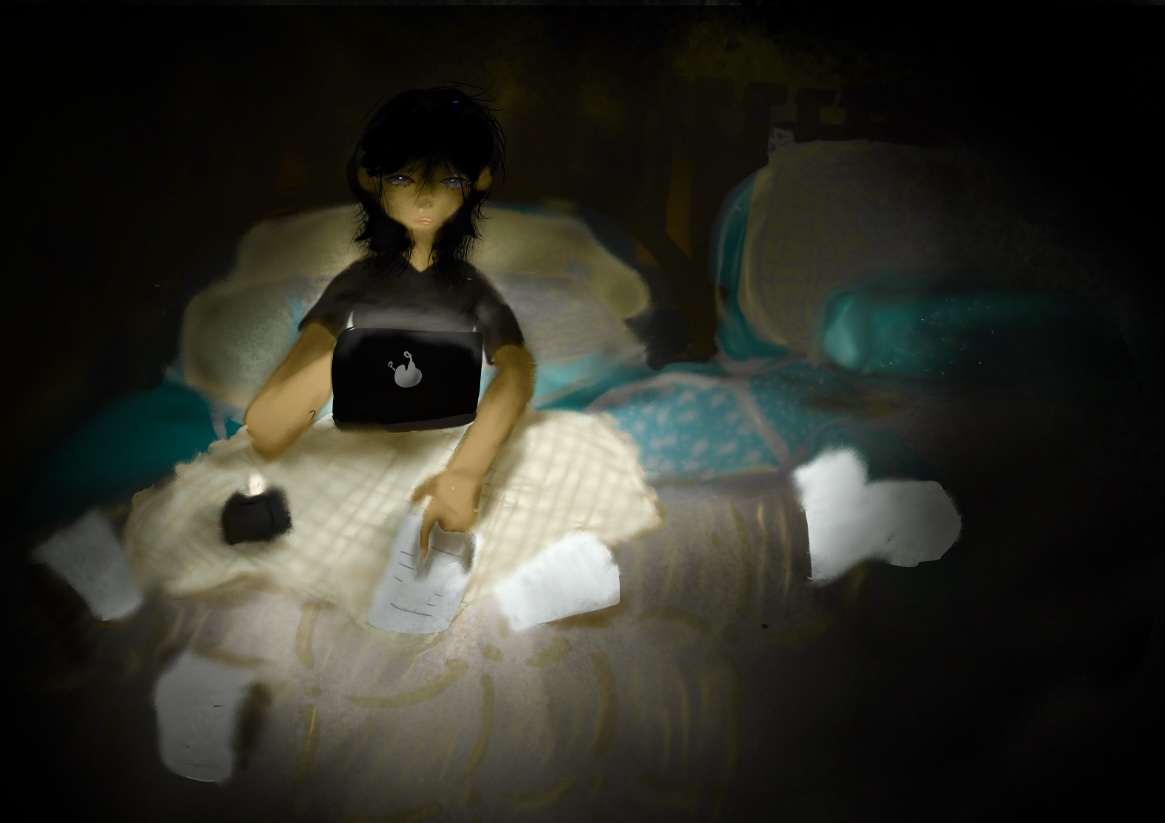By Genevieve Karutz
One morning, I commented on a YouTube clip of an allegedly live performance of BTS: “Nothing against BTS, but they are completely lip syncing.” I received hundreds of death threats and obscene responses within the next hour. Ultimately, I took my comment down. My eighth-grade self was terrified after this first interaction with “stans”. Senior Kelly Clesi, a self-proclaimed stan of BTS, calls this normal behavior for some stans.
The term stan, recently added to the Merriam-Webster dictionary, refers to an extremely or excessively enthusiastic and devoted fan. The term comes from Eminem’s 2002 song “Stan”. In this music video, unhinged superfan Stan tries to contact Eminem, but Eminem doesn’t reply to his letters and, subsequently, Stan kills himself and murders his girlfriend.
“A fan thinks [that] something is cool and enjoys it when a stan lives for it,” sophomore Emma Matzkin said.
Now that social media connects fans directly to celebrities, stan culture has become increasingly vengeful and cruel. One of the more well-known instances involves comedian Pete Davidson. After he and singer Ariana Grande broke up, Davidson, who struggles with borderline personality disorder, wrote on Twitter that he “really [didn’t] want to be on this earth anymore.” Grande’s stans continued to bully him and encouraged him to kill himself. Davidson’s mother also received taunts from Grande’s stans.
Not all people see stans as a negative force. Many students are passionate fans of various celebrities, films and sports teams, and they enjoy the sense of community that the online fanbase provides.
Clesi, a self-proclaimed “ARMY” member or BTS stan, first discovered the group during her freshman year and instantly fell in love. Like most fans, she likes the BTS members because of their talent and looks, but she feels a deep connection to the group. Clesi said that she would be willing to get hit by a car rather than see her favorite member Suga get hurt.
According to Clesi, BTS has unified fans around the world and has helped raise money for world organizations such as UNICEF through the band’s LOVE MYSELF campaign. In this way, she believes that stanning can be a force for good.
“What [BTS is] doing is breaking cultural divides,” Clesi said.
Although Clesi has made friends online through Twitter and the BTS Amino (where BTS fans can interac), she has also witnessed many stan wars. Death threats are not an uncommon occurrence among stans according to Clesi.
Matzkin, a stan of Marvel and the Avengers, calls Marvel “the most exciting thing.” Matzkin believes that the unique and diverse cast of the Avengers resonates with every fan.
Since she first watched “Iron Man” at age nine, Matzkin has become a devoted stan. She once spent a full hour looking at photos of actor Chris Hemsworth, and she has seen the movie “Thor: Ragnarok” at least 20 times.
Matzkin uses Marvel as an inspiration for her everyday life.
“[If Marvel characters] can deal with so much loss and pain,” Matzkin said. “I can study for a chem test.”
According to school psychologist Dr. Jay Kyp-Johnson, people become stans because the world is a chaotic place and they seek direction and order.
“[Idols] provide a readily relatable point of human contact for people to find themselves in,” Kyp-Johnson said.
Kyp-Johnson believes that because stans are directly connected to celebrities through social media, some people mistakenly believe that they have a real personal connection with their idols.
Sophomore Jamie Costabile believes that social media is merely a tool that helps fans interact with each other and enables them to keep tabs on what their idols are doing. Although she can understand how this can lead to obsessive fans feeling too close to their idols, she thinks that most stans are harmless.
Costabile is a part of many fan bases, including My Chemical Romance and Panic! At the Disco. She has made fan accounts on Instagram in the past and even created a costume to match Brendon Urie’s costume from Panic! At the Disco’s tour.
“I think [that] it’s important to find celebrities to look up to because everyone has a story,” Costabile said. “Someone has a story similar to yours. No one wants to feel alone, so when you find someone who [has]shared a similar experience [as] you, you want to hold onto that.”

Categories:
Stan Culture Can be Unifying and Toxic
May 16, 2019
Donate to ProspectorNow
In order to get better at what we do; making the best multimedia student journalism in the state, we need funds to purchase equipment like cameras, and software like the website you're reading this on right now. If you've ever found anything of worth on this website, please consider donating to offset the cost.



